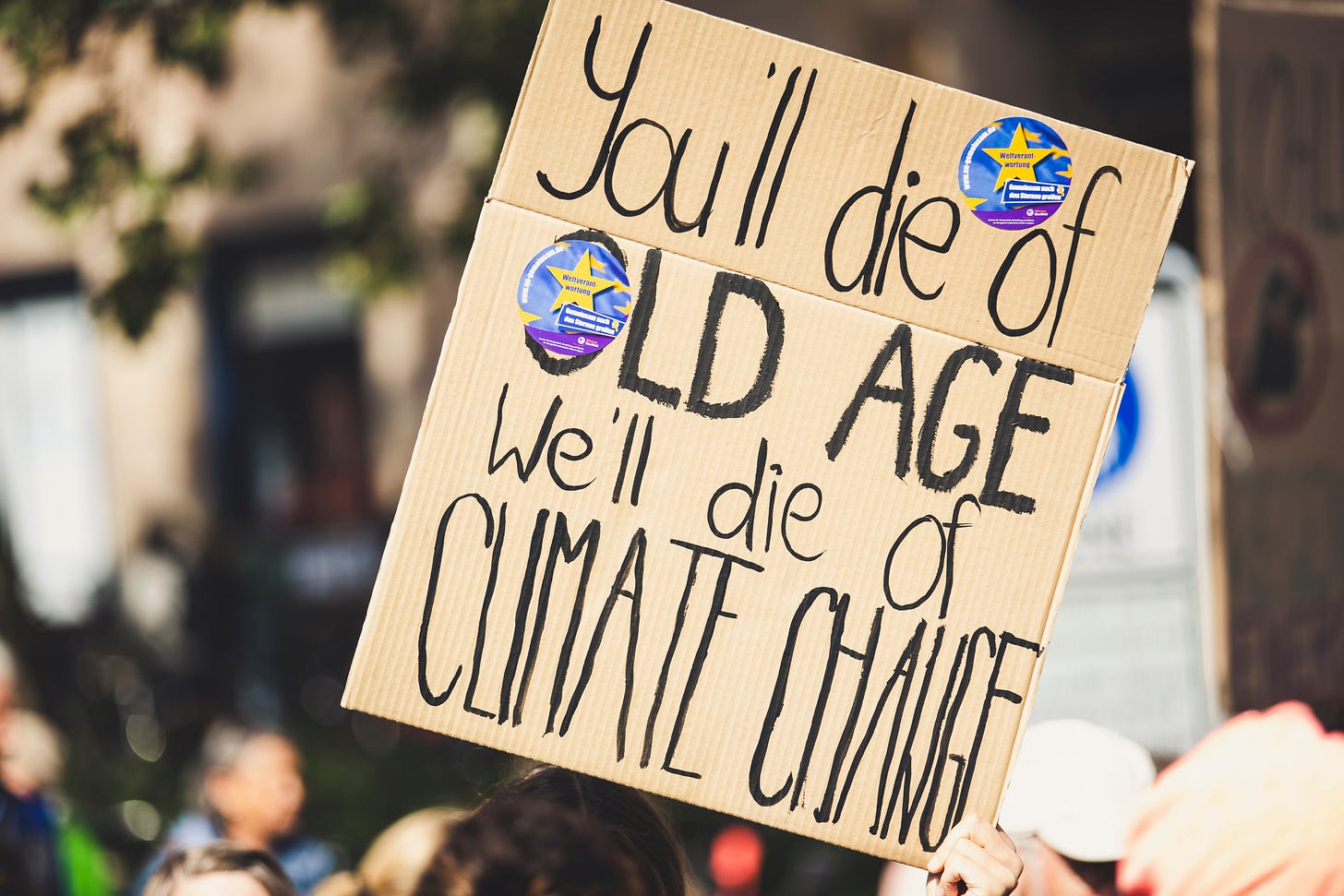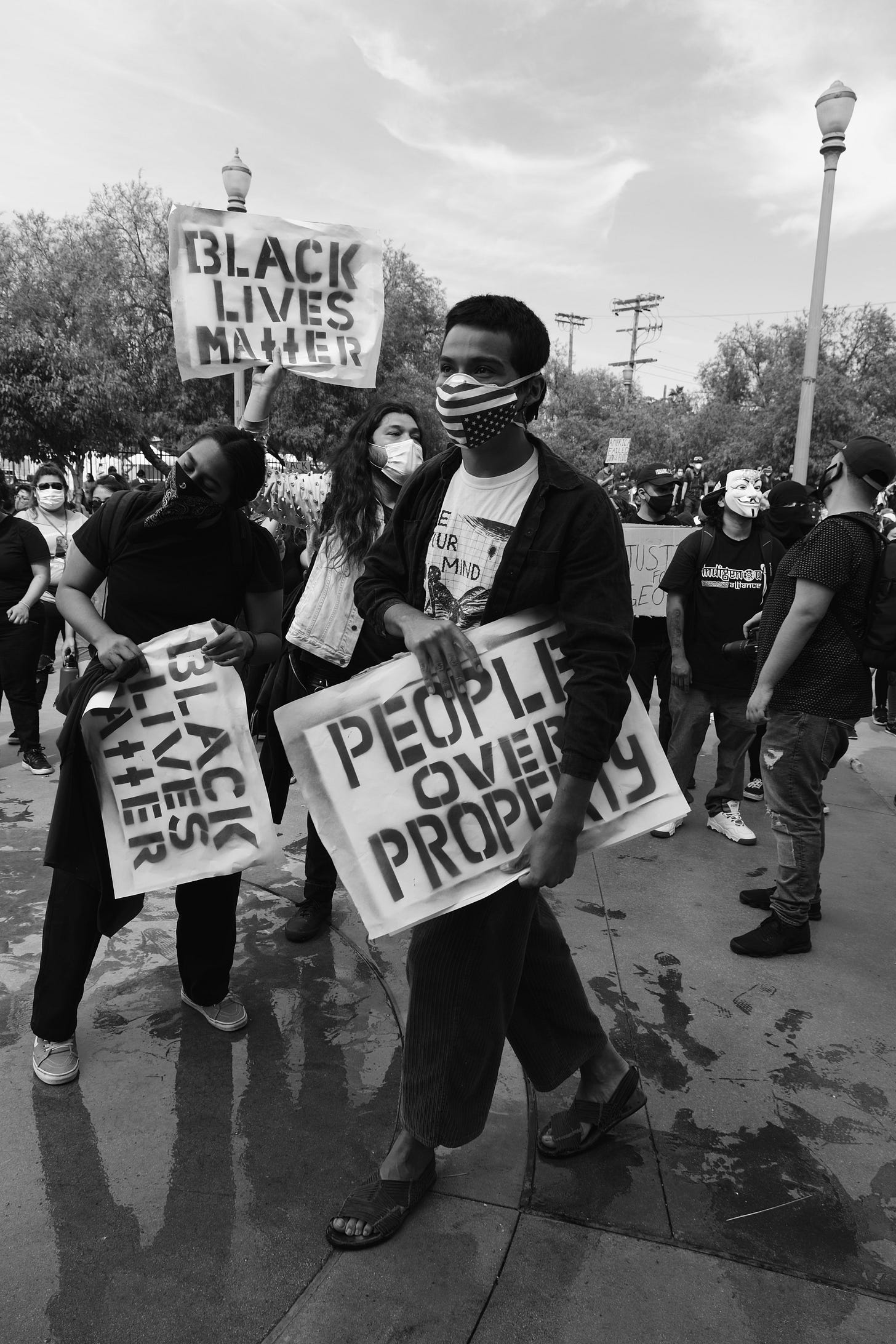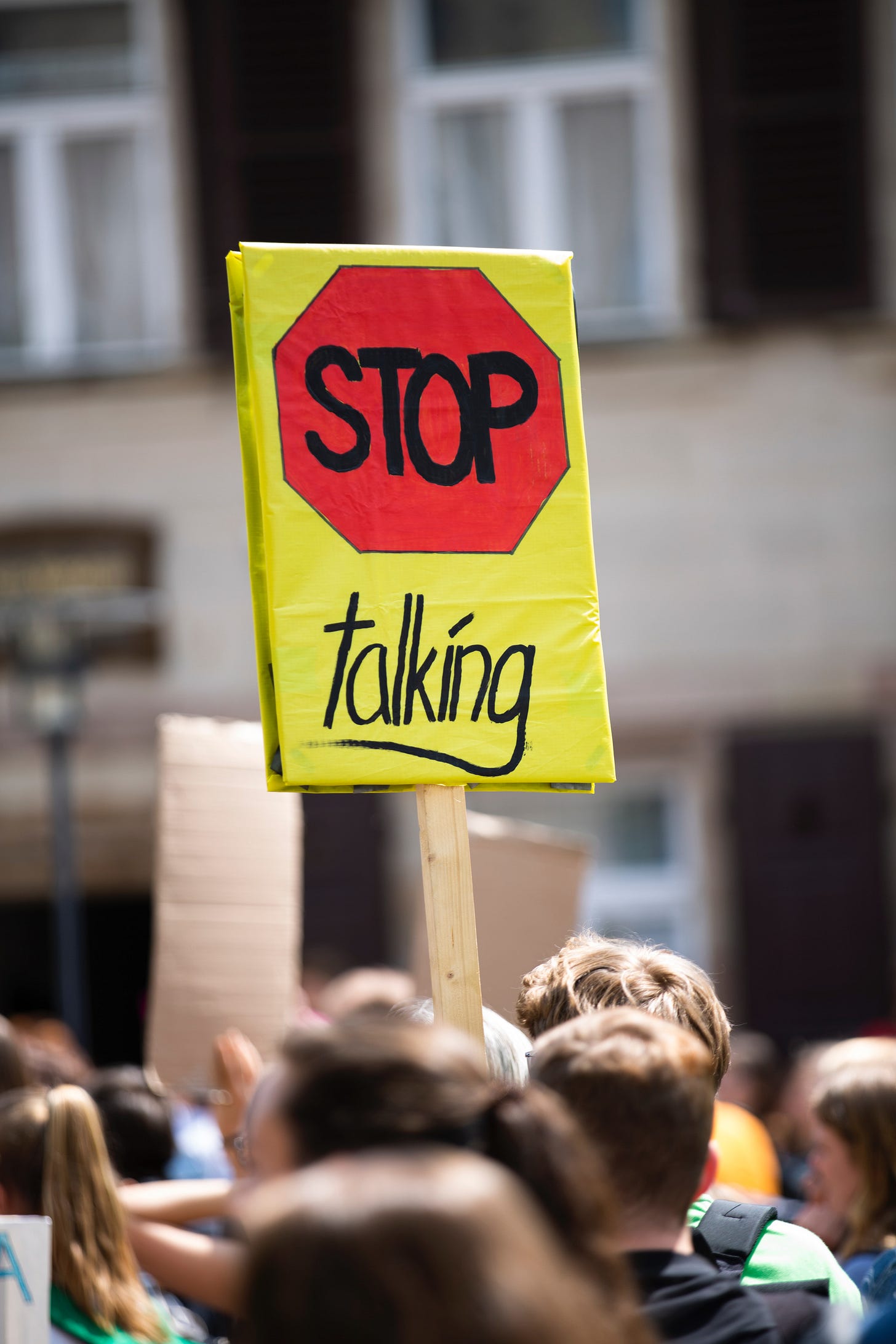Were You Traumatized by High School?
Here's what being a young person looks like today.
Maybe the hatred of high school is a genetic thing.
My son won his school’s student award in two categories: Worst Case of Senioritis and Most Likely to be Late to His Own Graduation. My daughter dominated in her category, which was Most Likely to Fall Asleep in Class. I regret to say I was worse than both of them combined, having skipped so many days of school, even one more absence and the administration would have refused to let me graduate.
When I was fifteen, I dated a guy once for no reason than he’d blown up the Vice Principal’s wing. I never showed up for my yearbook photos, class ring, or the prom. During school pep rallies, I’d lock myself in a bathroom stall the entire hour and read. For Phys Ed, I craftily forged a note from my mom saying I was on my period—a period that pretty much lasted the entire year. My high school boyfriend, who at twenty-three was still less mature than I was, would call the attendance office posing as my dad, saying I wasn’t coming into school today because of the flu/fever/cramps/backache/doctor’s appointment/other. Laughing maniacally, we’d take off for the beach.
But it is no exaggeration to say that high school traumatized me. I was never popular. Like most geeks, I had no sense of hierarchy or what constituted “cool.” The students who were cool, I found hopelessly vapid. No one (it seemed) felt the same way I did, so I cultivated my lone wolf instincts and got out ahead of the problem by rejecting the rejectors. School became something I avoided, even in thought. My life, my real life, happened outside those dingy institutional walls.
The consequence of all this is I barely remember high school, probably because I was hardly ever there. If I were to attend a reunion (which will never happen unless I’m lobotomized), there might be three, maybe four people I recognize. Who I am today (forceful, outspoken, sure of herself) was not who I was then (shy, awkward, romantic). But I can say with a high degree of certainty that no adult could withstand what we subject our own kids to every day of their lives: sitting in small desks for eight hours, living or dying by the tyranny of clocks, wearing what they’re told to wear, thinking what they’re told to think, and trying to survive in a system in which tests, shameless toadyism, and teachers’ personal biases dictate success or failure, to say nothing of having to suffer the brutal judgments of peers.
It scars you, high school does. My boyfriend John still has nightmares about his years at the American School in Rome (unlike me, he was and is objectively cool), which was quite a few rungs up the ladder from where I graduated. To this day, he regrets not having dropped out so he could dedicate himself fulltime to his craft. I would have been happy just going to a school with an arts-based curriculum. My son, who is dyslexic, was fortunate enough to go to a private school offering special accommodations. My daughter might have thrived in the same atmosphere I yearned for: less rigidity, more creativity.
And yet there are plenty of people who loved high school. I actually know a few. For them, high school was a time of excitement, friendship, carefree living. They took part in after-school activities. They attended pep rallies. They joined spirit club, the very existence of which imbued me with a sense of horror. Why did male athletes get their lockers decorated and stuffed full of baked goods? Where did this dumb jock/football worship come from?
Even some of the kids who weren’t popular found their niche. They did band or joined the yearbook staff. They doubled down on their academic achievements. For those of us on the outside looking in, high school was a language we didn’t speak, and we looked at the more successful interlocutors with both envy and suspicion.
And yet, none of this—and I mean none of this—compares to what 9-12th grade students, your kids and mine, are experiencing in 21st century America. Worrying about teenagey things like being asked to the prom has been eclipsed by 357 U.S. school shootings and a pandemic that has, as of this writing, killed more than 1,020,854 Americans. And what do students have to look forward to after they graduate? $40,904 in student loan debt (a number encompassing recipients of federal and/or private loans) if they decide to go to college. After college, a job market that’s white-hot for everyone except Generation Z.
According to the Federal Reserve Bank of New York, 41.3% of recent college graduates aged 22 to 27, were working jobs that didn’t require a college degree, a number which seems to be rising. Non-degreed jobs traditionally don’t pay well, which is why so many young adults who are on the hook for their student loans still live at home. 52% of them, in fact, a number equaled at no time in American history except the Great Depression, and one that cuts across all racial and ethnic groups.
Truly shocking, at least to me, is that young men are more likely than young women to live with their parents. Back in my day (which is, of course, when they’d first invented fire and the wheel), a young man wouldn’t be caught dead living with his parents. It was all about getting out and getting l**d, but that, too, it seems, is now less of a priority.
Numerous studies have shown that sexual behavior started changing with Millennials born in the 1990s, who are twice as likely as preceding generations to have had zero sexual partners since turning 18. The drop is particularly pronounced among young women, who spend more time online and less time going to bars; more time focused on professional and academic achievements and less time buying makeup (makeup-wearing Millennials are true maximalists with their baking, heavy coverage, and over-the-top Bambi lashes; Gen Zers prefer to take a more minimalist approach.)
Gen Zers are wisely wary of sexually transmitted diseases, unwanted pregnancy, and rape. They’re far pickier than their predecessors were about the sexual activity in which they are willing to engage, and more fluid about the gender they’re willing to engage in it with. 7.1 percent of U.S. adults self-identify as lesbian, gay, bisexual, transgender or something other than heterosexual, and members of Generation Z are driving that number.
Is it growth, a refreshing amount of honesty that for the first time in centuries the societal zeitgeist now allows, or a trend spurred by social media? I’m no sociologist, but I suspect that people, whose sexuality exists on a continuum, are finally being honest with themselves. And yet, even this new sexual glasnost isn’t enough to compensate for record levels of depression and anxiety among teens and young adults.
Is it any wonder? Gen Z is paying the biggest price for our dependence on fossil fuels, our inability to codify any laws regarding gun control, or our utter lack of courage to stop the religious right from overriding abortion, critical race theory, and which books are allowed in the school library. Gen Zers were expected to put their lives on hold for the better part of two years to stop the Covid-19 pandemic from killing people, even though Gen Z itself was never at significant risk. They’ll pay the bill for our insupportable housing bubble, our addiction to cheap “dictator oil,” and the coming recession.
We’re also losing them to substance abuse. The National Institute on Alcohol Abuse and Alcoholism (NIAAA) reports that over 4,200,000 people between the ages of 12 and 20 confessed to binge drinking. The Department of Justice reports that 1 in 6 teens has used prescription drugs to get high.
What kind of life is that for a young person? It was bad enough when Gen Xers and Boomers were starting out. High school might have been a raw Darwinian struggle, but at least it wasn’t a prison. Gen Zers are among the most depressed people in the history of the United States. Who wouldn’t be? They’ve faced mass shootings, political turmoil, and racial inequality. They’re a French Revolution in the making, and if lawmakers don’t wake up and realize the threat we all face, there will be blood.
I don’t blame the Zoomers for their rage.
In fact, I share it.
The short straw drawn by Gen Z is a subject near and dear to my heart, so I am looking forward to reading your comments. Speak up! Click the speech bubble below or leave your thoughts in the comments section.
Copyright © 2022 Stacey Eskelin






Middle school was brutal for me. Very traumatic and still stress-inducing when I think of the things I went through. Those are the years I skipped school a lot. Luckily, I found my niche in drama club and journalism in high school and it made it much more fun. I was never fully comfortable in my own skin and always felt as though I was on the outside of any group of friends I had, but I still somehow had fun a lot of the time. Plus, that's where I met my husband of almost 30 years so I have to give it some credit. But I never want to go back to feeling so unsure about myself. I'm not a confident person as it is, but I no longer hesitate to speak my mind. (And go home and shake and cry and get a headache and stomachache after. But damn it, I don't back down in the moment!) I'm so proud of how much more open-minded my kids (24 & 28) and their classmates were, but there are still all the same problems (bullies, drugs, peer pressure) plus more than we ever had to worry about.
I endured high school because it was what I had to do in order to get the Hell out of St. Cloud, MN and away from my parents. I never fit into any one clique, which never particularly bothered me, because I never wanted to. I was a decent long-distance runner and a very good student- National Honor Society. I got by quite nicely without studying and by putting out comparatively little effort.
When I graduated, it felt like my "Get Out of Jail Free" card, and I treated it accordingly. I never hated high school, but I never really loved it, either. I put in my time, had what fun there was to be had, and left when my time was up.
I can't imagine ever going back for a reunion, though. Ugh.